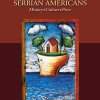Serbia in the Great War 1914-1918 is a book of facts based on well-known sources and documents. Affirming the sources and scholarly assessments, the truth about Serbia's efforts, the enormous number of victims from Serbia and its irreplaceable role in contribution to the freedom and development of the whole European continent, the authors of this book indirectly remind their contemporaries of the need for self-respect and the respect of victims who fell for the freedom of their countries and for historical experience. They also point to the value of wisdom and a mature attitude in these turbulent times.
.Srbija u Velikom ratu 1914- 1918
Nova naučna sinteza o ulozi i mestu Srbije i srpskog naroda u Prvom svetskom ratu. Napisali su je odabrani profesori istorije sa Filozofskog fakulteta u Beogradu - doc. dr Mira Radojević i akademik Ljubodrag Dimić. Recenzenti dela su takođe profesori univerziteta - akademik Mihailo Vojvodić i doc. dr Miloš Ković. S novim naučnim saznanjima, autori ove studije, sameravaju i dostignuća srpske i svetske istoriografije. To čine naučnim sredstvima, ali pišu čitkim i razumljivim stilom za širu čitalačku publiku. Knjiga koja se naučnim istinama suprotstavlja političkim revizijama istorije, naročito u ulozi Srbije u ovom razdoblju.




